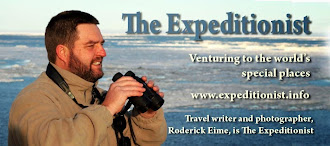Destinations such as Australia, UK and America need to understand how to service the premium traveller, if they want luxury travel business from any of China's one million millionaires.
That was the claim by David Thomas, a consultant for Think Global Consulting who was addressing the Luxperience Thought Leaders forum in Sydney Town Hall, on 1 September. “We simply don't understand how to service the premium traveller,” said Thomas, who believes elite Chinese travellers need to experience better human 'software' when they visit the West.
It's not just about language, said a Chinese travel industry CEO. “The Chinese traveller wants to be handled by people who understand their culture, not just language,” said China Luxury Travel Network's founder, Lin Xu who was also addressing the 240 luxury traveller buyers and sellers at the forum.
Xu said that there were in reality about 2.7 million US dollar millionaires in China as many exist “under the radar”. And it is a group that averages about three foreign trips a year, creating a booming luxury travel demand of up to nine million trips per year.
Millionaires, the rising middle class and brand-conscious aspirational travellers from the mainland account for about 25% of all international luxury brand consumption. Xu told the audience the total spend was about US$102 billion in 2012 with online spend alone worth around US$57 billion.
While bricks and mortar travel agents in the West provide the “main course” for the travel industry in the West, the main course for China is increasingly online, with Weibo and Wechat social media referral sites now driving massive amounts of travel related business.
The Luxperience Thought Leaders panel of six speakers agreed that the West needs to better understand the decision making process among China's travellers, including the role of women and extended families. Newly-moneyed male executives may earn it, but their wives and girl friends often spend it.
Research has to be online, in Chinese and easy to use on mobile devices too.
Clement Wong, the founder of BeMyGuest.travel told the audience that Chinese and Asian luxury travellers spend so much time in traffic jams that travel companies now must have websites that look good and function well on tablets and smart phones from the back of a car. Only then will they get their share of China's outbound travel market, that Xu said amounted to 83 million international trips each year.
The use of police escorts to beat the traffic when luxury travellers travel in places such as Jakarta are now popular, said Wong.
“China is modernizing, not Westernizing,” said Thomas, who told the audience that affluent Chinese travellers understood that the West had good infrastructure but were puzzled with small things, such as why it's difficult to get a caddy when they visit Australian golf courses.
This is indicative of the challenges when a “hierarchical society travels to an egalitarian one” said Thomas.
The panellists agreed that human 'software' challenges, understanding and personalization were the new frontier in servicing China's high-end travellers.
“Affluent Chinese travellers simply won't travel in big groups any more,” said Xu. “The key to success will be if travel experiences really suit China's new consumer needs and trends,” she said.
Author and Antarctic explorer, David McGonigal, told the audience there was, however, a degree of convergence in consumption patterns between China and the West. “Luxury is not about limos, but creating memories that are held in our hearts. Luxury is about feeling part of the place, not just being a casual observer,” he said.
The annual Luxperience travel industry trade show runs 2-4 September in Sydney. Visit. www.luxperience.com.au.


No comments:
Post a Comment